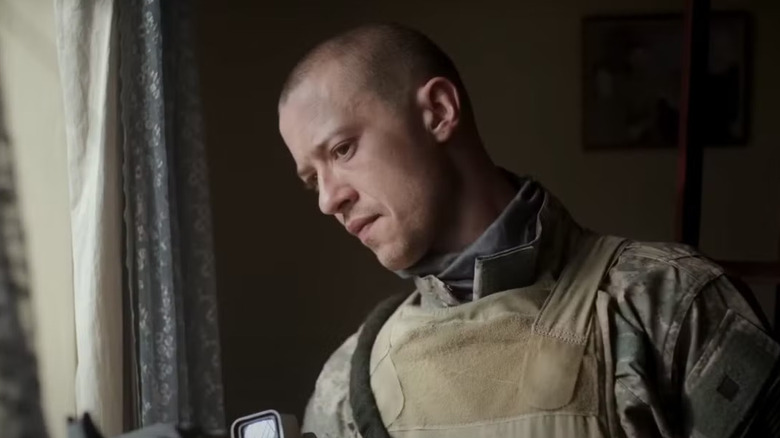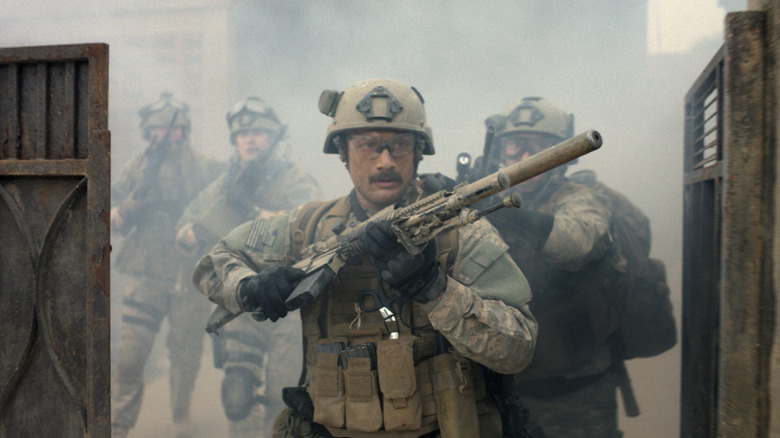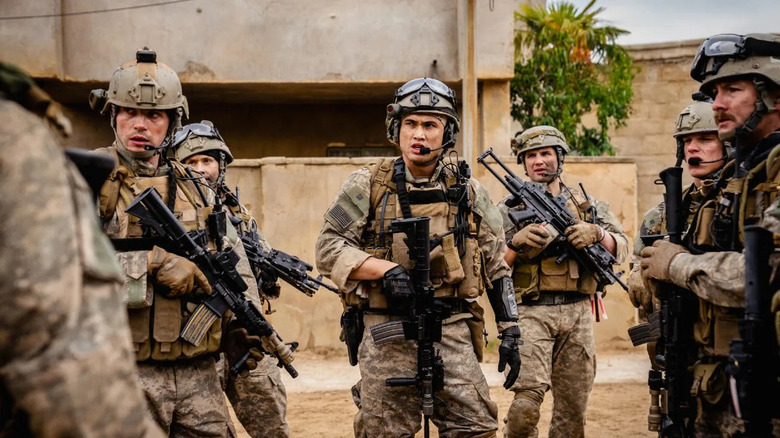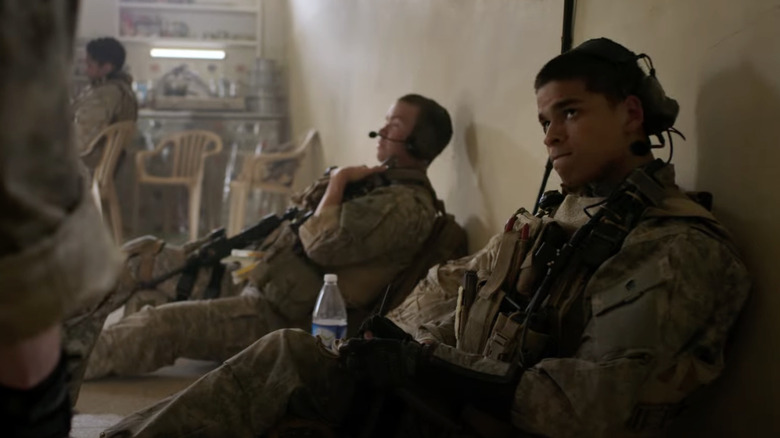Warfare Review: A Disturbing, Riveting Nightmare That Redefines 'War Movie'
There has never been a war film quite like Alex Garland and Ray Mendoza's "Warfare," which feels designed to discombobulate and disturb above all else. There is no real story here, no traditional plot, and certainly no character development — it's purely experiential, a real-time descent into a chaotic hell that asks the viewer to witness, and feel, the pain, exhaustion, and sheer terror of an actual battle scenario. And it does so without ever flirting with even a single rousing moment, or casting a specific judgment. "Warfare" throws you straight into the smoke and the muck, and expects you to grapple with your personal reaction to the visceral carnage of it all.
Those in the "support the troops" crowd hoping for a flag-waving tribute for men in uniform will be furious. Those wanting the film to make an overt statement about the futility of war, or American foreign policy, will be left hanging. But those who embrace the experiment that Garland and Mendoza (who also co-wrote the film together) have created will find one of the year's most challenging and unique cinematic experiences. Lots of movies have set out to depict a realistic depiction of military combat, but "Warfare" feels like the genre reaching its final, unpleasant, and perhaps unforgettable final form.
This is the least-exciting war movie ever made, but by design. It is, instead, an experience depicting what it means to go to work at a job that is tedious until it is terrifying.
An experience born from Civil War
"Warfare" was born on the set of Garland's similarly intense button-pusher "Civil War," where conversations with Mendoza, his on-set military advisor, led to the two choosing to collaborate on a film based on the latter's real experiences as a soldier in the Iraq War. With a commitment to depicting every detail as accurately as possible (they claim no moment in the film is invented or modified, and every major beat was drawn from interviews and memories of those involved), the duo chose to adapt one very, very bad day from Mendoza and his fellow soldiers' past. Specifically, a 2006 mission gone awry.
The non-narrative drive kicks in early. Good luck remembering any names, and don't expect any character to learn a Hollywood-friendly lesson and have something resembling an arc. Garland and Mendoza embed the audience with a platoon as if we've known them for ages, and this is just another day. The tedium of the film's first half hour is deliberate — this is a dull mission, and these guys are just ... waiting. Embedded within a home commandeered from two non-combatant families, they sit tight, watch the streets through the scope of their rifles, and chat about nothing, really.
And when things go wrong, they go very, very wrong. The tedium ends with a suddenness that is jarring and then resulting chaos — all of it surreal, loud, and deliberately difficult to parse — effectively puts you in the boots of these men. An especially effective sound mix shifts perspective, translating each character's headspace into distinct aural soundscapes. When the screams of the wounded begin, they don't stop for the rest of the movie.
Warfare is not afraid to be messy and upsetting
By design, the film casts no direct judgment. The film doesn't tell us to feel angry that the higher-ups in United States military lets these troops down, as a rescue mission is painfully slow to materialize. Similarly, it doesn't tell us to be furious that this platoon has literally taken over a house occupied by innocent men, women, and children, transforming their home into a literal battleground. "These things happened," the film says, forcing us to acknowledge that these soldiers can use their power and authority in irresponsible ways while also showcasing moments of tremendous bravery and shattering weakness. It's messy, it's unsettling, and it encourages a complicated reaction. If you feel uncomfortable and conflicted about the whole thing, you've fallen into the film's web.
It's the details that construct that web. In lieu of story or plot, "Warfare" is assembled entirely out of details, moments that feel as vivid as a memory. There's no romance to the job here, and the violence never once veers toward resembling anything remotely exciting. We can't see where the bullets go, and we can't tell who's "winning" or "losing." But we do bear witness to an unconscious man waking up, and casually realizing that his legs are on fire. And we watch as trained soldiers continuously stumble into wounded men as they fail to watch their surroundings, sending them into fits of pure agony. Most of all, we watch as desperate, cornered people make impossible decisions torn straight from their adrenaline high.
"Warfare" presents us with the images, as closely as Mendoza and his fellow soldiers recall them. It then leaves the judgment up to us. It's a responsibility that few films allow an audience, and the pressure of that assignment feels crushing.
Warfare's special power is what it chooses to not say
There's a reason I haven't mentioned any actors in the course of writing this review: character and development of said characters is not among the film's goals. There are plenty of recognizable actors (Will Poulter, "Stranger Things" breakout Joseph Quinn, and Charles Melton, among others), and no one gives a bad performance. But when the goal is authenticity above all else, the movie only allows these actors to exist in moments, to let us experience the nightmare alongside them. I couldn't tell you a thing about them beyond the basic details of their role in the platoon — they're companions, not characters.
It's a choice that fits the goals of the film, but also one that acts as the double-edged blade. "Warfare" is downright experimental in its presentation, daring even in how it bucks form and structure. As an experience, it cuts to the bone. But as a movie? Well, that's tougher to judge, as the style is the substance here, and we have to accept that traditional story building blocks like "character development" have been sacrificed for the sake of total immersion.
"Warfare" is a tough film to like in the traditional sense, but it's the kind of film that you can easily admire. When the literal dust clears, and the audience stumbles out into the theater lobby, you can feel a thousand different conversations teed up, ready to be had. By not having those conversations onscreen, Garland and Mendoza demand that you have them after the fact. There's a special power in that.
/Film Rating: 8 out of 10
"Warfare" opens in theaters on April 11, 2025.



